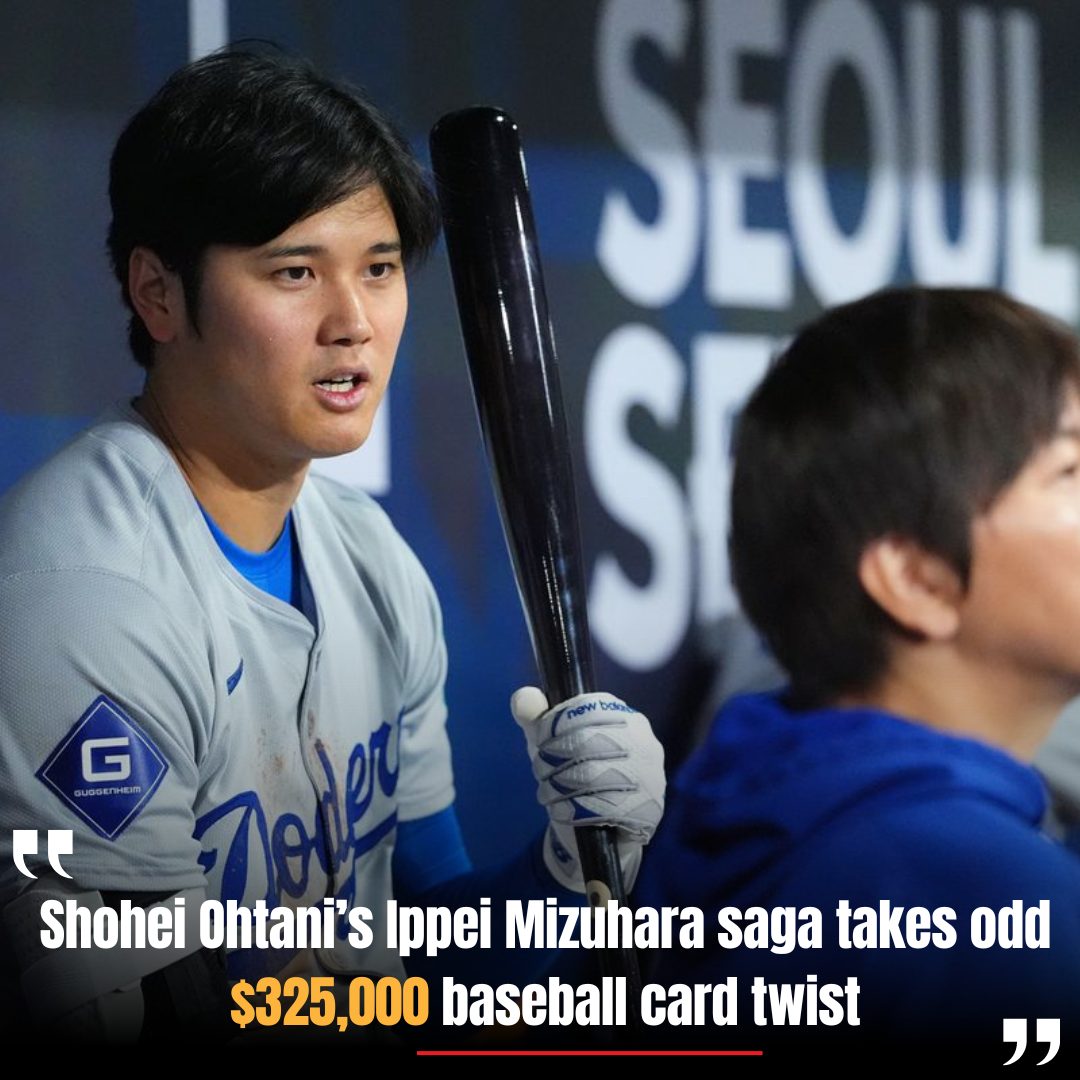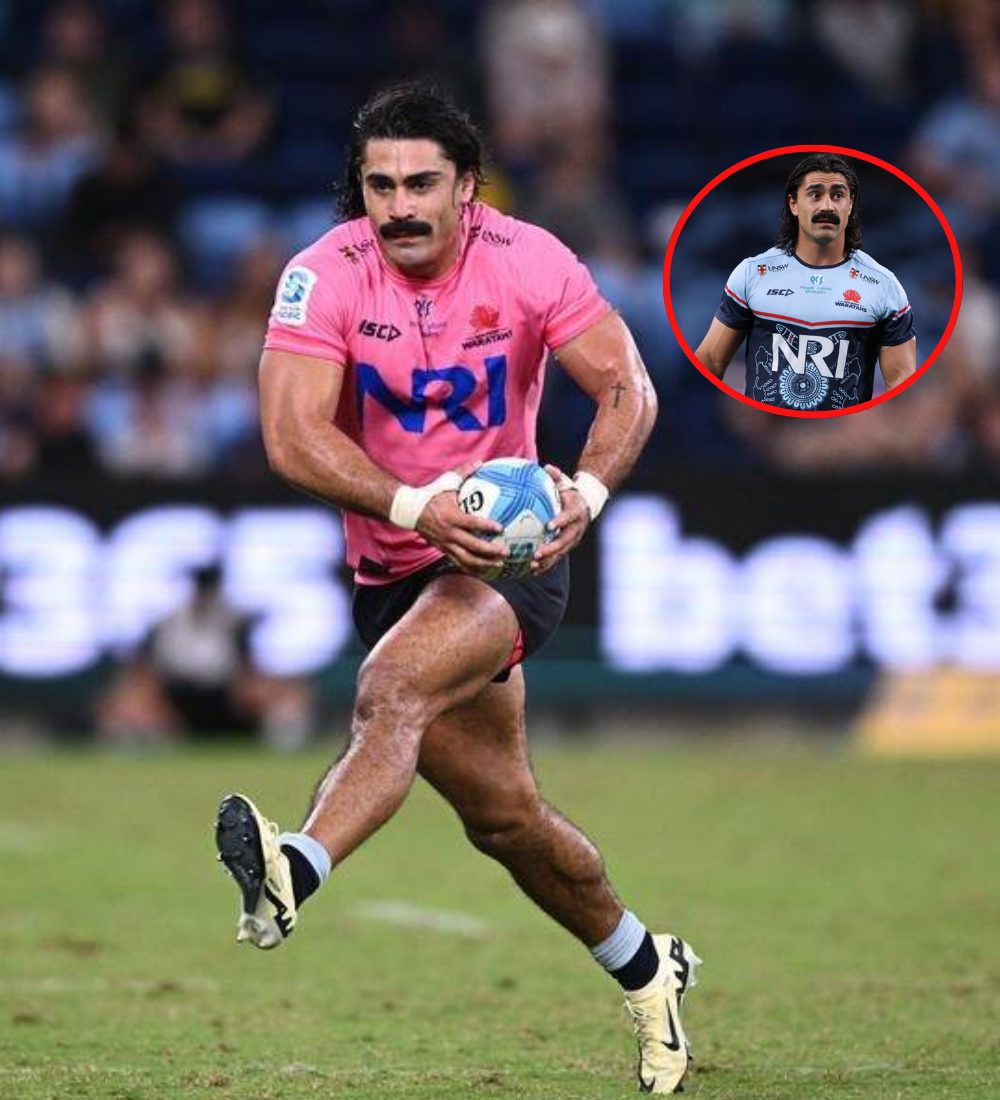On Friday afternoon, the Six Nations confirmed a number of law trials which would be tested out during next month’s Autumn Nations Series of games.
The biggest, and most controversial trial being rolled out will be the introduction of a 20-minute red card for certain offences.
An amendment of the closed trial used in the Rugby Championship, Pacific Nations Cup and World Rugby U20 championship earlier this year, this will now allow teams who have had a player sent off for a technical offence to bring on a replacement after a period of 20 minutes, if the act of foul play was deemed to be accidental.
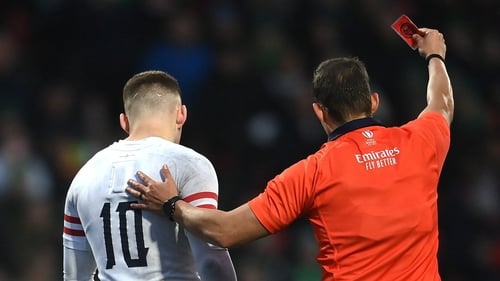
For acts deemed deliberate, referees will still have the authority to issue a permanent sending off.
In explaining this, and the other trial laws being used in November, the press release from the Six Nations says it stems from “the ambition to simplify the game in key areas.”
It’s hard to take that rationale at face-value, never mind the claim that reducing the sanction for a red card will “ensure player safety and welfare standards remain paramount”.
For several seasons and for obvious reasons, the game’s gatekeepers have been taking a pretty hard line on head contact.
At grassroots and semi-pro level, there was a controversial lowering of the tackle height in 2023, which does appear to be changing behaviours after an initial bedding in process.
At the top of the game, there has been a clampdown on any tackles or collisions that involve the head, intentional or otherwise. It hasn’t been universally popular, particularly in New Zealand and Australia, where the current push for a 20-minute red card is being driven due to low numbers through the gates at Super Rugby level.
But while the current Head Contact Process is strict in its application, it’s been developed as a step-by-step process, is easily understandable, and is largely consistent.

If the ambition of those pushing through this trial is to “simplify the game”, then the proposed trial we will see in the Autumn Nations Series completely contradicts that.
Under the wording of the trial, “Match Officials will retain the ability to award a permanent red card for acts of foul play which are deemed deliberate and dangerous. Match officials will also have the option of a 20-Minute Red Card for technical acts of foul play deemed not to be deliberate or intentional.”
If a referee, or TMO Bunker official, now have to determine whether or not a dangerous tackle is accidental or intentional, then it is inarguable that the process has been further complicated.
What constitutes “intent” and how can a match official interpret it in the moment? Menacing eyes? Verbal threats? Leaked recordings of team meetings?
So far, only the French have taken a firm stance, with their country’s rugby federation, (FFR), National Rugby League (LNR) and players’ union (Provale) issuing a joint statement on Monday making it clear that they would firmly oppose the move.
It was a powerful message sent out by the FFR, particularly given how their own men’s national team picked up two red cards during this year’s Six Nations. They, more than any other team, would have benefitted from a 20-minute red card this year.
The IRFU have since come out in opposition, but only to an extent.
After waiting a few days to check the temperature of the rugby public, they released a statement on Friday afternoon confirming they are against the blanket introduction of a 20-minute red card. Their statement was greeted warmly online by those who only read the opening paragraph, as Irish Rugby still welcomed the amended version which will be operating across their four games next month.
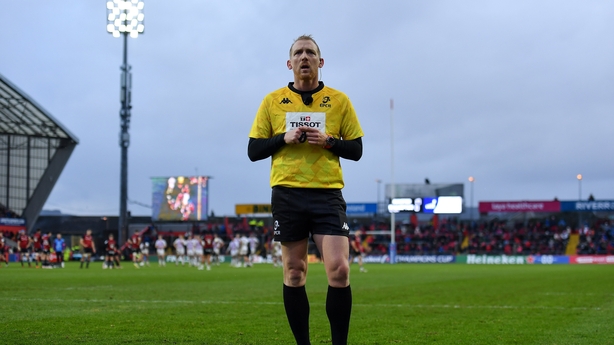
If the difference between a 20-minute red card and a permanent red card comes down to interpreting the intent of the player in question, then it’s hard to see referees making such a distinctive call in the heat of the action, when they can offer a more palatable punishment instead.
“The timing is shocking,” former Munster out-half and current Cork Constitution head coach Jonny Holland said on the RTÉ Rugby podcast this week.
“From my experience, players, coaches and those within the actual game itself haven’t been the ones complaining about it.”
Holland can look back with first-hand experience on dealing with a red card in a crunch game. Back in April, his Cork Con side triumphed over Terenure in the All-Ireland League final despite losing second row John Forde to a red card in the 19th minute.
“I know there might be a certain incident where they’re going ‘Jeez, that’s harsh’, but I think that’s the outlier. People within the confines of the pitch were never really complaining that much.
“It’s a red card for me and you should go off the pitch. It doesn’t bother me if it’s an accidental error, because you’re upright. If you don’t want to get red cards, don’t be upright.”
Similarly, La Rochele head coach and former Ireland international Ronan O’Gara was vehemently against the proposal.

“My thoughts would be strong, the 20-minute red card is nonsense,” he said on Off the Ball on Friday.
“I don’t see where it fits into the game.
“A 20-minute red card, I think it opens the door, especially for player safety, we could be re-entering dangerous territory again.”
The other question all of this begs: Why now?
As pointed out on the FFR in their statement on Monday, there is little to no “concrete and convincing data” which supports either the trial being used in the Autumn Nations Series, or the closed trial which had been used in competitions earlier this year.
At the World Rugby U20 Championship, only three red cards were issued across 29 games, the Pacific Nations Cup had one red in 11 games, and the Rugby Championship had one red in 12 games. Of those five red cards in total, the teams on the receiving end won three and lost two games.
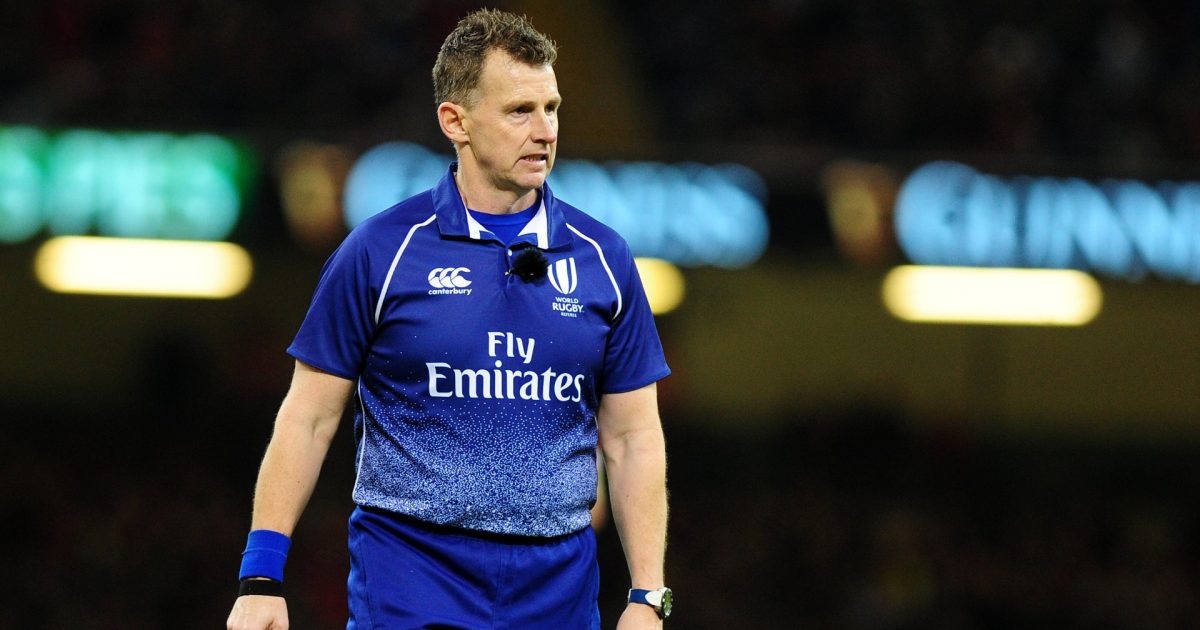
Coincidentally, that small number matches up perfectly with the FFR’s own findings from their analysis of 480 French top flight and international games, where the red-carded team lost 60% of the time, a figure which is high enough to make a red card a deterrent – which is the very point of a red card – but low enough that it’s evidently not ruining the game as a contest.
The debate over having a middle-ground between a yellow and red card has been part of the rugby zeitgeist for several years, and was previously trialled more than three years ago in the Pro14 Rainbow Cup in 2021.
Strangely, all of this is being pushed through at a time when calls for it to be brought in had softened, and those involved in the game were beginning to change their behaviour in the contact area.
Ireland picked up two red cards for dangerous tackles in the 2021 Six Nations, but have not had a sending off since. Similarly, Wales have now gone more than 40 games without a red card in the men’s game. England had four red cards in a six-game stretch in 2023, but have clearly adapted, with just one sending off in their last 14 Tests.
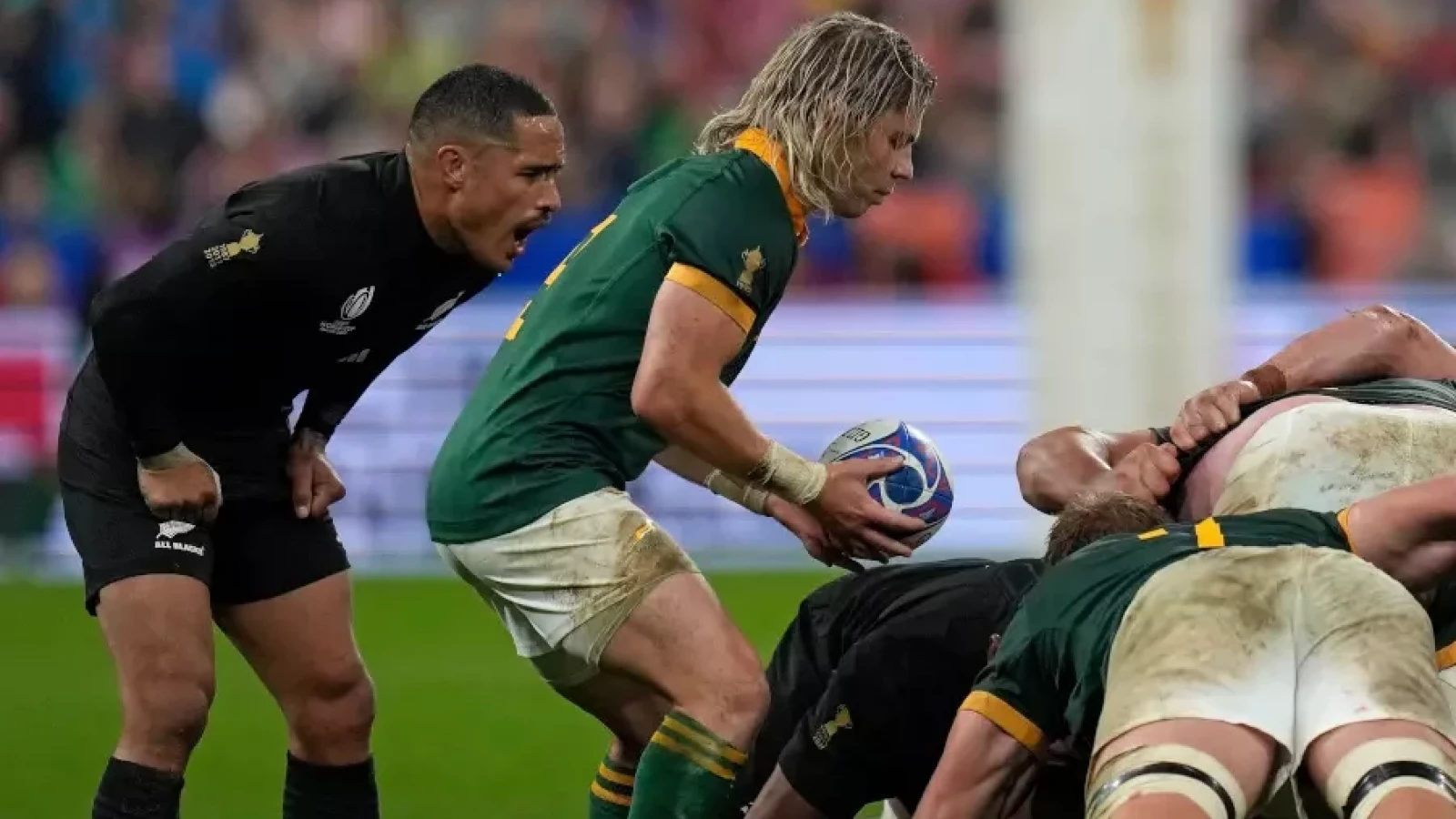
Argentina picked up the only red card in the Rugby Championship, and even then it’s hard to argue Pablo Matera’s sending off against South Africa had a material impact on that contest, with his side 27-7 behind against South Africa at the time of the incident, into the second half.
Between them, the Six Nations and Rugby Championship teams have played a combined 49 games in 2024, combining for seven red cards in total, spread across five different teams. In other words, one red card for every seven games.
With so few games encountering red cards, but so many head injuries still ruining the sport, those running the game are taking a major risk for the prospect of a very small reward.


